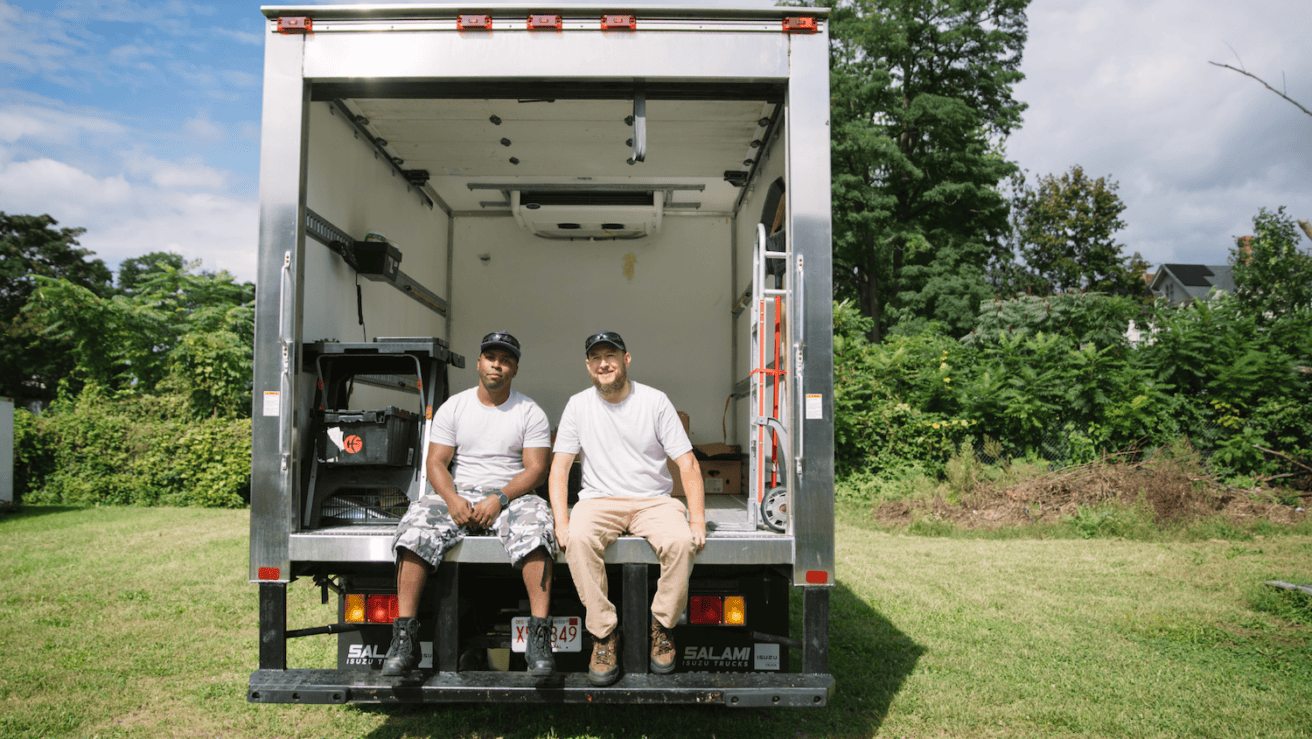We keep on truckin’

Published: February 7, 2023
“Days when the [Spoonfuls] truck comes are always the best day of the week – it’s like you guys always have everything we need.” – Resident at Spoonfuls’ Nonprofit Partner, Granada House
“New families come to us with no money to their name, and are amazed when the [Spoonfuls’] truck comes with food. The quality of the food, how nice it is, and the fact that we get it for free – they just can’t believe it.” – Staff member at Southern Middlesex Opportunity Council (SMOC) location
“It is a blessing to get a whole week’s worth of food from a single truck.” – Staff member at local 12-Step program
For many of our nonprofit partners and end-recipients, Spoonfuls’ trucks have become a symbol – a sign that healthy, fresh food is coming! The excitement makes sense! A well-maintained food rescue fleet is essential to our ability to deliver. Our trucks allow us to carry out our mission by safely and efficiently transporting good food that would otherwise be discarded to nonprofits serving people facing food insecurity.
But – on the road five days per week – they also experience wear and tear. Staying up-to-date on maintenance and replacing vehicles that need replacing is an important way we ensure reliability and continuity of service to places like Granada House, SMOC, and the 12-step program mentioned above.
What’s the impact of our trucks exactly?
In 2022, Spoonfuls’ food rescue fleet collectively carried 4.3 million pounds of good food from the point of pick up at grocery stores, wholesalers, farms, and farmers’ markets to our nearly 200 nonprofit partners, including local pantries and meal programs. Redirecting that much food to people, instead of landfills, meant:
- More than 3 million healthy meals for people facing food insecurity across Massachusetts.
- Preventing the equivalent emissions from driving 15 million miles in a car, or 2,579 round trips from Boston to Los Angeles.
- Keeping the value in food, by helping the $8 million worth of food we rescued get to people.
Safety features
Our trucks are outfitted with key features to help keep the food we rescue, staff, and community members safe. That includes:
- Refrigeration unit: This allows us to cool and maintain safe temperatures in the box of our trucks, where rescued food is stored, during transport. We focus on perishable food, so this is critical to ensure items like fruits, vegetables, meat, and dairy are safe to eat after spending a few hours onboard.
- Back-up cameras: Without a rearview mirror to look through, back up cameras help our drivers gain visibility behind the truck to ensure the area is clear of pedestrians and other vehicles before backing out of loading docks and parking spots.
- Back-up beepers: Our drivers are always careful to do a thorough surroundings check before putting it in reverse, but as an extra precaution, our trucks beep while moving backwards to alert people in the area that the vehicle is in motion.
- Telematics (coming soon): Our team is currently beta testing Telematics, which among other features, use sensors and onboard diagnostics, to measure things like vehicle speed and appropriate stops. This software, which will fully roll out later in 2023, will help us understand where there is room for improvement to avoid accidents.
What needs replacing? How much does it cost?
Generally, we don’t need to replace an entire truck at once, but we know – after a vehicle drives enough miles – that certain parts need an update to stay in good working order. Here’s what that typically looks like.
- Chassis: Swapped every 4 years. Our latest quote, from August 2022, priced these at $78,095. We’ve seen prices skyrocket from supply chain and disruptions and inflation.
- Box: Replaced every 8 years. As of December 2022, this was priced at $104,000
In addition to repairs and replacements, there are other costs associated with maintaining our fleet like filling the gas tanks, getting oil changed, and more.
Current needs for Spoonfuls’ fleet
Right now, we’re fundraising for two replacement trucks – specifically, two chassis. Thanks to the Richard and Susan Smith Family Foundation and the Weezie Foundation, we have 79% of the funding – but need help closing the gap. You can support these replacements, by making a donation.